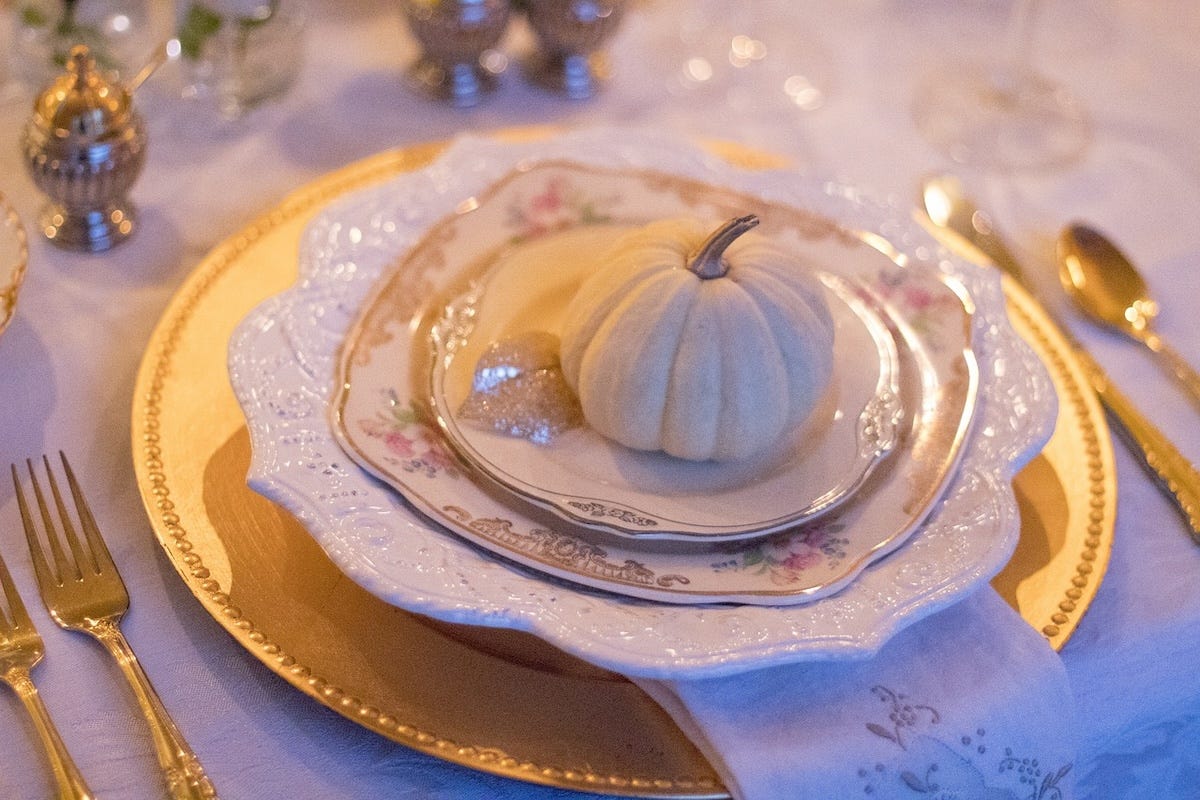A Thanksgiving Friendship Dilemma
A reader is upset about sharing a Thanksgiving table with people she would never choose as friends.
QUESTION
Hi,
I feel so pressured to attend my daughter’s mother-in-law’s Thanksgiving party, which I’ve been doing for the last seven years. My daughter has given up trying to host it herself.
My son-in-law insists I go with him and my daughter to keep the peace. But at what cost? The family is nice enough but overly religious and somewhat intolerant of other religions and t differensexual preferences. I feel like they live in a world that existed two centuries ago and I live in the present but realize there is no use arguing with them.
After telling them over and over that my dog can’t eat chocolate sweets or anything from the floor, the father-in-law dropped all his medications. The dog ate one. Fortunately, it was a vitamin. This year I won’t bring the dog.
There is a lot of tension because these parents don’t understand boundaries and meddle in their son’s affairs. My daughter had a big battle with them seven years ago. His mother wanted 400 guests at the wedding at her parish 200 miles away, at our expense.
We were happy to pay for my daughter’s wedding but not all her mother’s guests. Anyway, they didn’t give up without a fight. Finally, they gave in but pretty much took over the wedding planning and arrangements.
Since we now share grandchildren, I want to remain civil and friendly without getting upset. This year we plan to attend the Thanksgiving dinner but only for a short time (we are leaving the dog elsewhere and have to return to feed her, so the time will be limited).
We plan on staying away from deep conversations about anything that could be a problem and yet, I‘m still stressed out by having to attend. I’m wondering why.
ANSWER
You answered your own question, which is something that happens so often when people take the time to write a carefully composed note about a dilemma. So, as we see it, you’re already on your way to your solution!
It’s tough to ignore the obvious: You don’t particularly like your in-laws or share their values. And you wouldn’t choose them as friends—but you do share children and grandchildren with them. Understandably, you are wise enough to know that you don’t want to make things any more difficult than it has to be for your daughter and her husband.
These all seem like compelling reasons to sit at the same table on Thanksgiving for a few hours a year and share some good food.
Setting time limits for your visit - gotta go, the dog needs us! - is a great idea. So is avoiding conversational topics, such as religion, politics, sexuality, and finances. We all know those topics can be polarizing and pave the way angst and arguing.
With this in mind, hopefully, the experience will be a little less stressful.
We also suggest you focus on your grandchildren; after all, they are the reason you are there. Showering them with love and attention has an amazing ability to make you feel like you don’t have a care in the world. And children, with all their innocence and goodness, can wipe out even the most evil amongst us.
The icing on the cake (or pecan pie)? You don’t have to cook or do dishes.
Hope it’s better than you expect!
In friendship,
Irene & Sheryl
A side note:
In January 2020, Merriam-Webster added the term “Friendsgiving” to the dictionary.
Here is the M-W definition: Friendsgiving is a blend of friend and Thanksgiving, and it refers to a large meal eaten with friends either on or near Thanksgiving.
For many of us, friends are the family we choose. Hoping you find yourself at a table with those you love!
Friendship Rule
Friends are the family we choose.





Many of us with married kids have a similar dilemma. Our son's wife is expected to spend every major holiday with her family, and my son has to follow the program. Luckily, my husband and I are always invited to our son's in-laws' gatherings.
However, we also have close family members on our side who also want/expect to see us during holidays. So we do our best to alternate or rotate our visits each year and try to be as fair as possible. Not easy, of course.